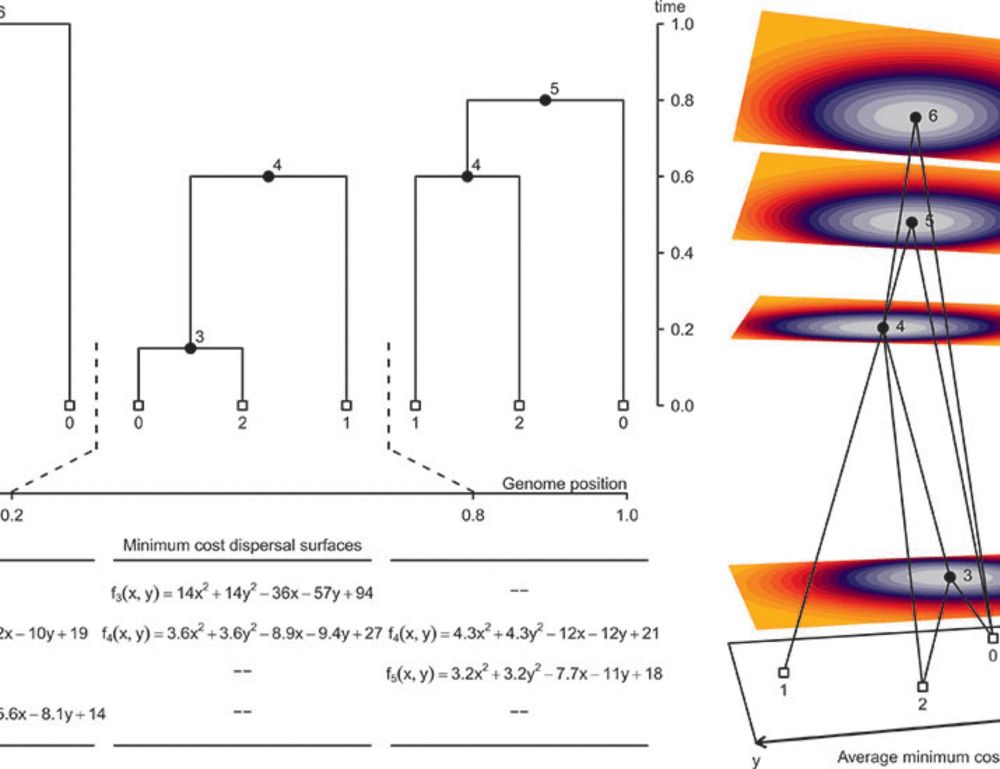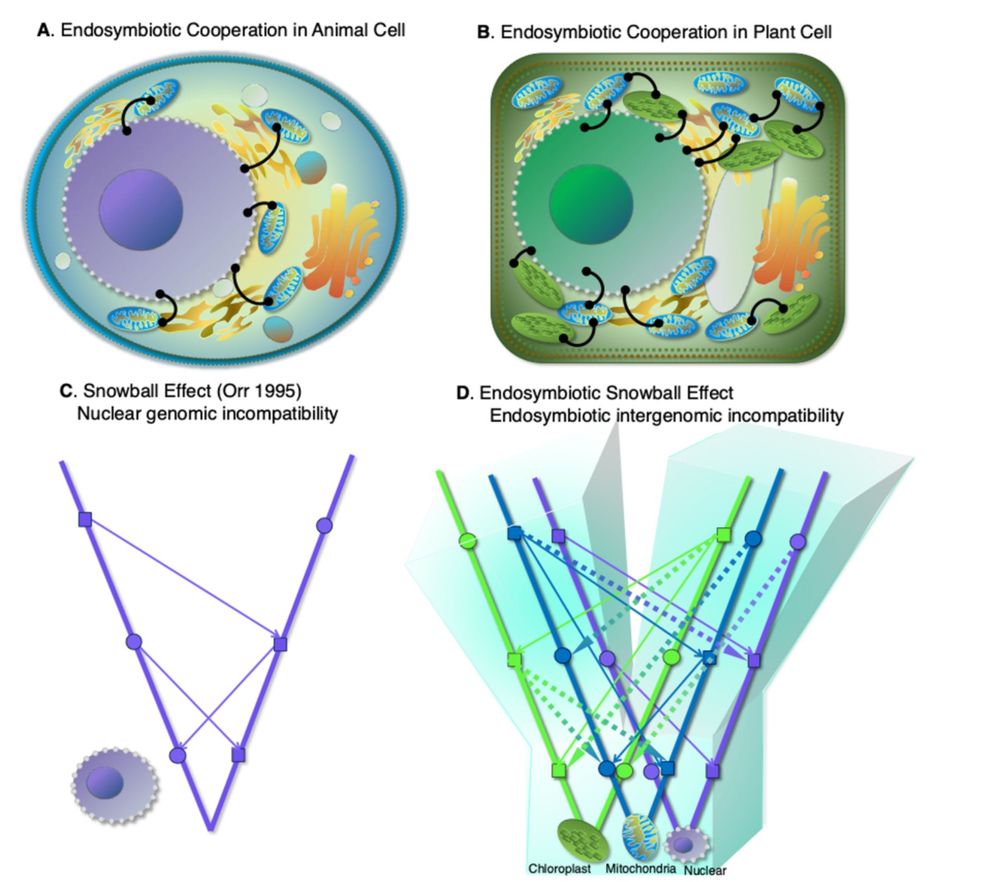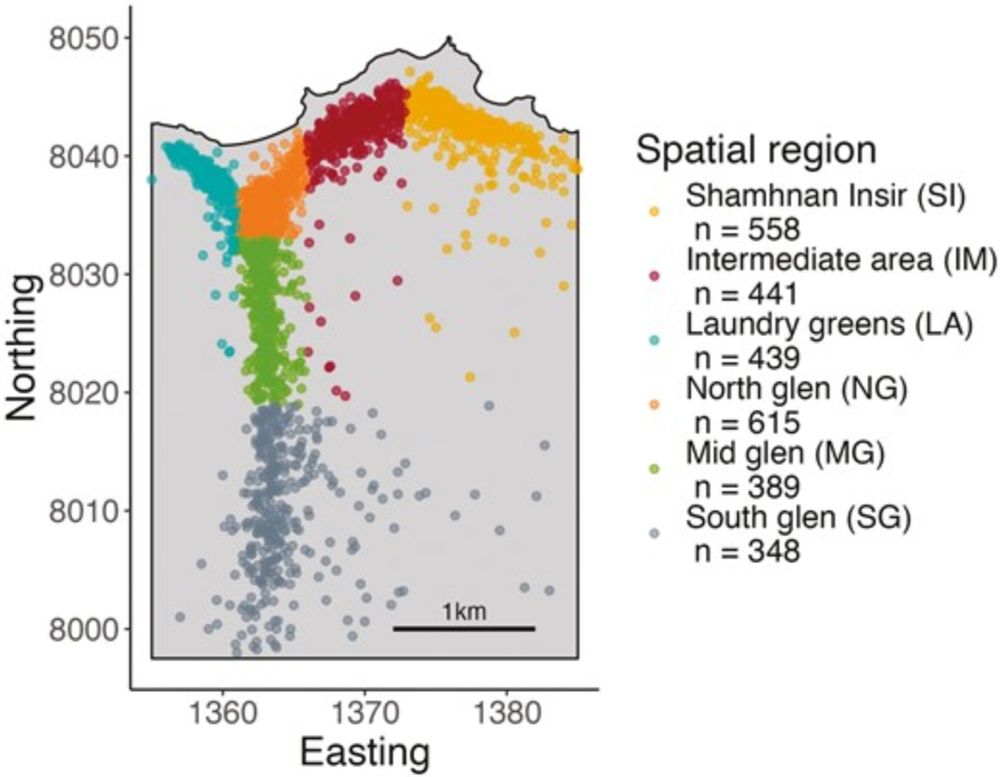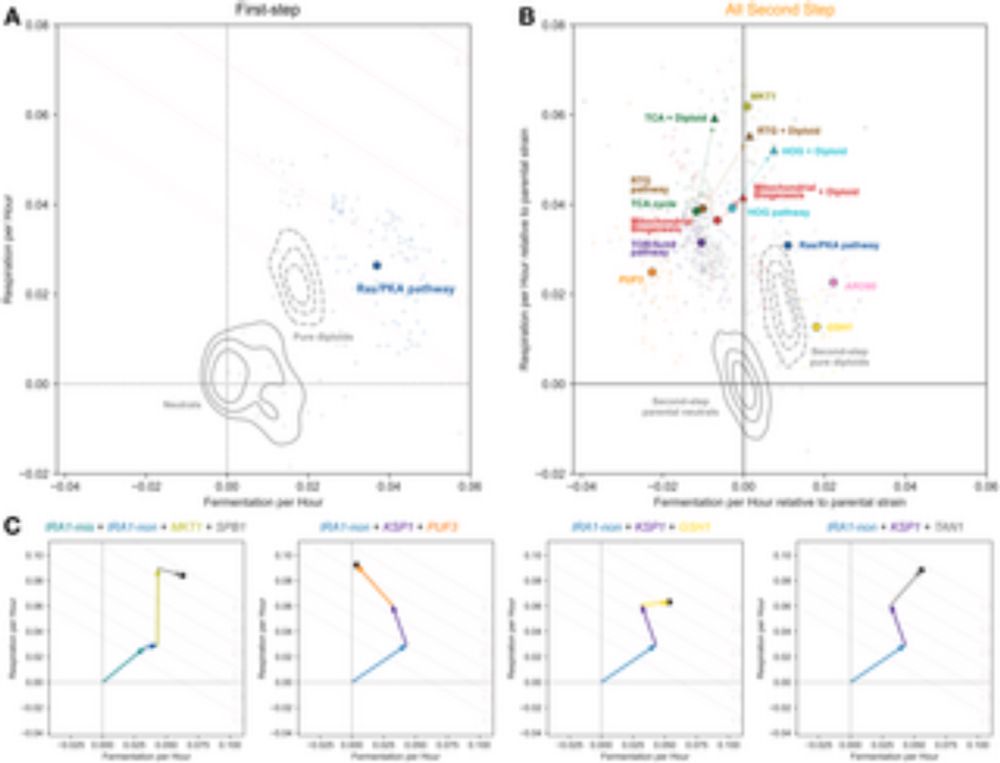
Evolution Ecology Paleontology lab.
Population Genetics, Molecular Evolution, Speciation, Sex Chromosomes, Haploid selection, Bryophytes.
), we find the opposite: animals exchange genes more, and for longer, than plants

), we find the opposite: animals exchange genes more, and for longer, than plants
www.science.org/doi/10.1126/...

www.science.org/doi/10.1126/...
🫘 Dissecting genetic mechanisms of environmental adaptation in common bean
Project: [https://www.pulsesincrease.eu/]
📄 Click on Job for description [https://moulon.inrae.fr/]
Please share! #Postdoc #JobOpening #INCREASEProject
🫘 Dissecting genetic mechanisms of environmental adaptation in common bean
Project: [https://www.pulsesincrease.eu/]
📄 Click on Job for description [https://moulon.inrae.fr/]
Please share! #Postdoc #JobOpening #INCREASEProject
www.biorxiv.org/content/10.1...
🧵👇 (1/n)

www.biorxiv.org/content/10.1...
🧵👇 (1/n)
"Estimating recombination using only the allele frequency spectrum"
1/2
www.biorxiv.org/content/10.1...

"Estimating recombination using only the allele frequency spectrum"
1/2
www.biorxiv.org/content/10.1...


🦌 Using genomic and fitness data from a long-term study of red deer we investigated the interaction between inbreeding depression and the environment (ID × E)
doi.org/10.1093/evle...

🦌 Using genomic and fitness data from a long-term study of red deer we investigated the interaction between inbreeding depression and the environment (ID × E)
doi.org/10.1093/evle...
framaforms.org/my-interest-...
framaforms.org/my-interest-...
doi.org/10.1093/evle...
Now in @evolletters.bsky.social by Ewan Flintham et al.

doi.org/10.1093/evle...
Now in @evolletters.bsky.social by Ewan Flintham et al.
Graduate students & postdocs, if you'd still like to join us: make sure to register before the 1st of Feb!
Graduate students & postdocs, if you'd still like to join us: make sure to register before the 1st of Feb!
Does this change over the course of evolution?
Excited to share our work in PLOS Biology exploring these questions in the first 2 adaptive steps w/ Yuping Li, @gsherloc.bsky.social, @petrovadmitri.bsky.social 🧵
doi.org/10.1371/jour...

Does this change over the course of evolution?
Excited to share our work in PLOS Biology exploring these questions in the first 2 adaptive steps w/ Yuping Li, @gsherloc.bsky.social, @petrovadmitri.bsky.social 🧵
doi.org/10.1371/jour...


